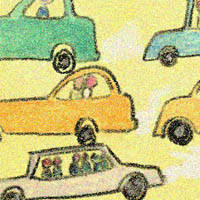 Both the West and the UK as a nation have had a difficult couple of years – from terror attacks in major European cities that many of us know well, to the Brexit vote and result, quickly followed by the political fall-out and Trump’s control of the USA. Just when we thought it couldn’t get worse, terror came back to the streets of the United Kingdom in the middle of yet more political uncertainty during the 2017 general election. Then, most recently, we witnessed the unprecedented loss of life in the Grenfell Tower horror.
Both the West and the UK as a nation have had a difficult couple of years – from terror attacks in major European cities that many of us know well, to the Brexit vote and result, quickly followed by the political fall-out and Trump’s control of the USA. Just when we thought it couldn’t get worse, terror came back to the streets of the United Kingdom in the middle of yet more political uncertainty during the 2017 general election. Then, most recently, we witnessed the unprecedented loss of life in the Grenfell Tower horror.
For most of us, these events are stories we digest through the various forms of news and political and social media coverage – something happening in the outside world, well away from us. But these events have been quite triggering for people with worked-through and unworked-through trauma in their life stories.
At my own practice, contacts from people experiencing anxieties appear to have risen dramatically since the June 2016 Brexit vote; 2017’s events have done nothing to quell this near tide.*
Anxiety can be an extremely difficult and life-restricting thing to experience or have to live with. The professions of psychiatry, psychology and psychotherapy have created many working models of anxiety and many labels with which to subdivide or associate types of anxiety. Social Anxiety, Panic Disorders, Obsessive-Compulsive Disorder (OCD), Post-traumatic Stress Disorder (PTSD), Acute Stress Disorder and Generalised Anxiety Disorder form the kaleidoscope of disorders humans feel when anxiety gets overplayed and out of hand. And yet, anxiety is a natural thing to experience. Indeed it is the body’s response to danger. You can think of it like a monitor or alarm that is set to be triggered if you are put in the position of feeling threatened, under pressure or when you are facing a stressful situation.
In small amounts, anxiety is often a very good thing and in some situations it can even be the thing that saves your life. However, get too much of it happening inside a human being for too long a duration, and it can cause problems with pretty much any area of your life. At that point, we start to think of it not as a friend that can help us to feel alert, motivated and push us into action, but as a disorder that can control and even ruin our life.
If you find that you have – in addition to the primary anxiety symptoms of irrational and excessive fear or worry – other common emotional symptoms such as feelings of dread or apprehension, vigilance for danger signs, expectation of the worst, difficulty with concentration, feeling irritable or tense and jumpy, or that you experience mind fade (where your thoughts just go blank), then it might be time to think about taking steps to talk through your anxiety issues with a professional or, at the least, take some positive actions which might include things like mindfulness practice or regular exercise. And, if you don’t feel like being confined to a room to work through your issues with a therapist, then you might want to consider taking your anxiety to an outside environment with some walk and talk therapy – such as the type I offer within my Cambridge or Bristol practice.**
* There has been a reported five-fold increase in traffic to the Mental Health Foundation’s online anxiety page since July last year (Therapy Today Magazine May 2017)
** Walk and talk therapy will be the subject of a future post on this blog site.
 Living life by numbers … and the midlife crisis
Living life by numbers … and the midlife crisis What are you living for now
What are you living for now